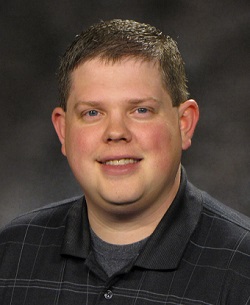By: Curtis Baker
 Now that Jesus has addressed the potential temptations that a life of prayer may present, he then goes on to teach us how to pray. There are two places in the gospel accounts where Jesus does this. In Luke 11 his own disciples approach him after seeing Jesus in prayer and ask him to teach them to pray. That prayer is a slightly shorter version of the same prayer that Jesus teaches here in the Sermon on the Mount, so it is a reasonable assumption that this was the form Jesus commonly used when teaching on the subject of prayer. The prayer is very short, and can be quoted easily, but what I would like for us to see is that this prayer is more than simply a form to recite. He is teaching us what the content of our prayers should consist of.
Now that Jesus has addressed the potential temptations that a life of prayer may present, he then goes on to teach us how to pray. There are two places in the gospel accounts where Jesus does this. In Luke 11 his own disciples approach him after seeing Jesus in prayer and ask him to teach them to pray. That prayer is a slightly shorter version of the same prayer that Jesus teaches here in the Sermon on the Mount, so it is a reasonable assumption that this was the form Jesus commonly used when teaching on the subject of prayer. The prayer is very short, and can be quoted easily, but what I would like for us to see is that this prayer is more than simply a form to recite. He is teaching us what the content of our prayers should consist of.
In this passage there are six things that Jesus teaches us to pray for. I will cover the first three this week, and continue with the last three next week. The first three things have everything to do with our direct relationship with God.
First, Jesus tells us that we are to approach God as “our Father who is in the heavens.” This is an important part of prayer that reminds of who we are in relation to God. God is clearly in a superior position to us, and we are to address him with the respect we would show to a superior. In a time when fatherhood is often seen in a negative light, addressing God as Father may bring unwelcome feelings to many. But the image is not only supposed to be authoritative, but also warm and confirming, as a good father should be with his children. It is not a casual relationship, but it certainly isn’t a rigid one either. To address God as Father means that we can trust him to have our best interest in mind, that no matter what, our relationship is defined in terms of being a part of his family. To address someone specifically is also to distinguish prayer from simple thinking. To be concerned about something, or to mull something over, is not prayer. Prayer is attention to a specific person–our Father. His place in the heavens also lets us know that he is always near. The heavens are not some place far away, they are the substance of things that surround us, but we cannot see. God is always present to us as our Father.
Secondly, Jesus asks that we pray that God’s named would be “hallowed.” This is not a word that we use very often anymore, so a clearer way of understanding this word might be to request that God’s name would be “honored” or “held in high esteem.” In the same way that a child hates to hear anyone say something bad about their parents, so also do we want everyone to honor God ‘s name for the wonderful thing that it is. As his children, we pray that God’s name would be honored more and more among people, because we were made for that. To not honor God is to strike out on our own and to separate ourselves from the only source of our existence and well being. We don’t want that for ourselves, or for anyone else for that matter.
With this substance firmly in our hearts, Jesus then teaches us to pray for what naturally comes next. Since we love God and wish his name to be honored, we also request that his will be done “on earth, as it already is in heaven.” Because of God’s respect for the dignity of our independent sovereignty, the earth is the one place where God does not permit his will to be fully done. But for those who love God and wish to see his named honored, this is the next ordinary movement in prayer. We want what God wants to be done to actually be done, because we know what God wants is what is truly best for us. That is not to say, of course, that sometimes our natural tendency is to not want what God wants, but we do not give in to our natural tendency. Our insight allows us to know that God knows best because he is our creator, and that only what he desires will bring us true and everlasting joy. That is what we were made for; and it is what we must pray for in abundance. Next week we’ll see the other three elements that Jesus teaches about prayer. God bless!
(Don’t forget to join me for A Message from the Heart radio program Sunday evening at 8:00pm on KJAK 92.7FM, or streaming live at www.kjak.com)
(curtisbaker@hotmail.com)
Write to: P.O. Box 157, Slaton, TX 79364

